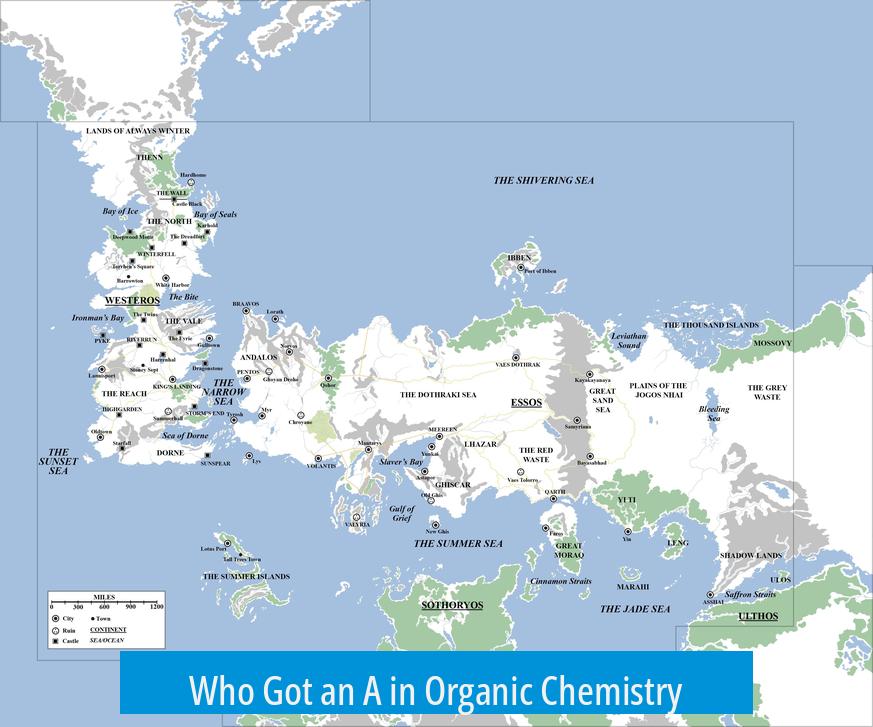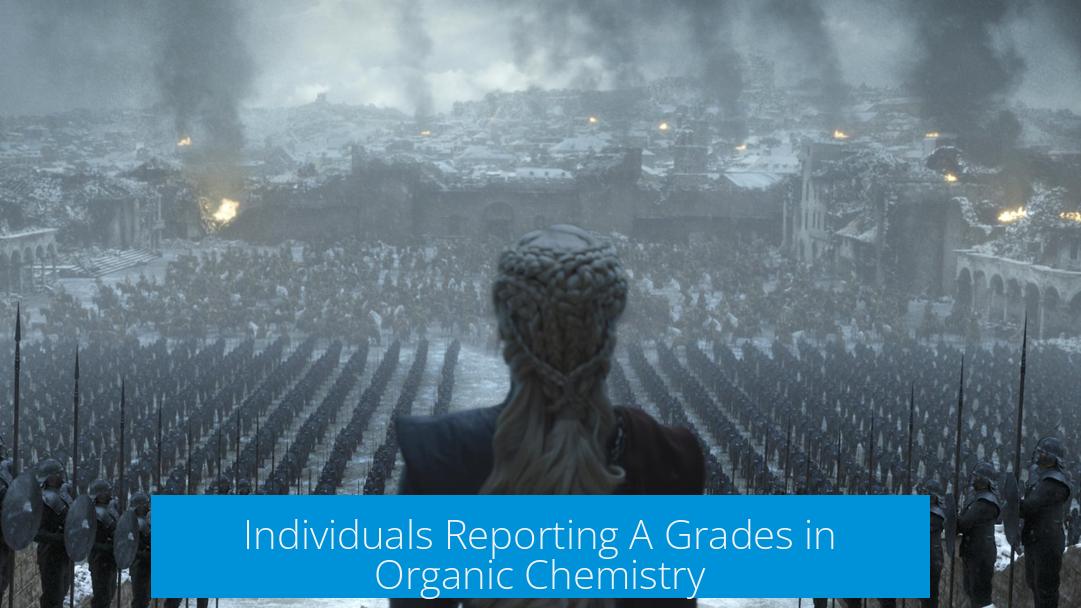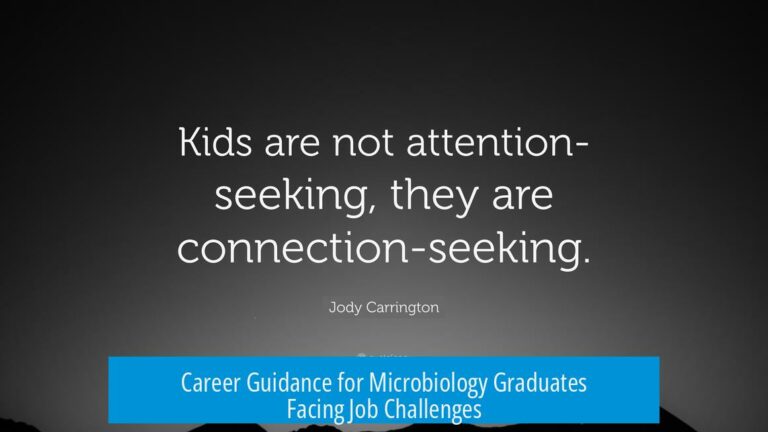Who Got an A in Organic Chemistry?

Many students achieve an A in organic chemistry by adopting disciplined study habits, engaging actively with professors, and utilizing diverse learning resources. Examining reported experiences reveals common strategies and challenges encountered by those who excelled in organic chemistry courses.
Individuals Reporting A Grades in Organic Chemistry

Numerous students share earning A grades across both Organic Chemistry 1 and 2. Examples include:
- One student earned a B in Organic Chemistry 1 but achieved an A in Organic Chemistry 2, alongside A grades in both lab courses.
- Some secured A grades in both semesters, including receiving A+.
- Others attained an A in advanced organic chemistry courses but had Bs in foundational classes.
- One student scored an A- in Organic Chemistry 1 while studying intensively for just 3-4 days before exams.
These accounts show that students with varying backgrounds and study timelines can earn top grades, often emphasizing rigorous practice and strategic preparation.

Effective Study Methods Used by Students Who Achieved A’s
Consistent and Daily Review

Students who succeed tend to review lecture material immediately and regularly. Consistency helps retain complex concepts and reaction mechanisms:
- Daily practice of organic chemistry problems.
- Reviewing lecture notes rapidly after class.
- Quizzing oneself during spare time to strengthen memory.
- Repeatedly working on mechanisms until mastery is achieved.
Use of Flashcards and Notes

Flashcards are a frequent tool:
- Making flashcards for reactions and mechanisms, sometimes carried in pockets for frequent review.
- Utilizing apps like Anki to memorize reaction types and properties.
- Rewriting notes and creating reaction webs to visualize connections.
Engagement with Professors and Peers

- Office hours offer key insights and exam hints.
- Forming study groups provides varied perspectives.
- Regular communication with professors and tutors addresses difficulties early.
Supplementary Resources
Successful students complement lectures with external materials such as:
- Online video tutorials (e.g., Khan Academy, Professor Dave Explains, Leah4Sci, AK Lectures).
- Popular textbooks like Paula Yurkanis Bruice’s Organic Chemistry.
- Specialized courses like Chad’s Prep master organic chemistry course.
Conceptual Understanding and Visualization
Top students emphasize understanding rather than rote memorization:
- Thinking critically about nucleophile-electrophile interactions.
- Visualizing reaction steps and drawing mechanisms repeatedly.
- Viewing organic chemistry as a language to be learned, not just memorized.
Preparation and Time Management
- Scheduling daily study blocks to maintain steady progress.
- Reviewing material weekly to consolidate knowledge.
- Some students dedicate intensive study sessions before exams, up to 72 hours total.
Motivational and Psychological Tips
- Balancing stress by prioritizing health and not overburdening oneself.
- Enjoying the learning process through creative techniques, such as games or analogies.
Common Challenges and How A Students Overcome Them
Organic chemistry demands mastery of many details. Students report challenges like:
- Initial difficulty understanding reactions, with poor grades early on improving over time.
- The cumulative nature of the material requiring consistent effort.
- High volume of content demanding efficient study techniques.
Many who earned A’s began studying well in advance or intensified review after struggling initially.
Summary Table: Examples of Organic Chemistry Grades
| Student Report | Ochem 1 Grade | Ochem 2 Grade | Lab Grade |
|---|---|---|---|
| Student A | B | A | A in both labs |
| Student B | A | Withdrew | – |
| Student C | A | A | – |
| Student D | A- | Not taken | – |
| Student E | C | Loved it (improved) | – |
| Student F | C | C | A’s in labs |
| Student G | Bs | Advanced A | – |
| Student H | A+ | A+ | – |
Essentials for Earning an A in Organic Chemistry
- Stay current by reviewing lecture immediately.
- Practice problems daily, focusing on mechanisms.
- Use flashcards and rewrite notes often.
- Engage actively with instructors and study groups.
- Use external resources for varied explanations.
- Develop deep conceptual understanding.
- Manage study time regularly and avoid last-minute cramming.
- Balance motivation; maintain health and reduce stress.
Key Takeaways
- A students in organic chemistry employ consistent, daily study and active review.
- Flashcards and repeated mechanism practice aid memory and understanding.
- Close interaction with professors enhances clarity and exam readiness.
- Supplemental tutorials and textbooks support core lectures well.
- Overcoming difficulties requires early, persistent effort and adaptation.
- Balancing motivation and health is crucial for sustained success.
Who Got an A in Ochem? The Secrets Behind the Scores Revealed!
Who got an A in ochem? It’s a question that echoes through every university hallway where organic chemistry is taught. The infamous “Ochem” course, with its labyrinth of reactions and mechanisms, has sent many students either fleeing or triumphantly raising their A-grade banners. But who actually scores that coveted letter on their exams? And more importantly, how do they do it?
Let’s take a deep dive into some real student experiences, study habits, and tips that turned the daunting task of organic chemistry into an academic win. Grab your molecular model kit and a cup of coffee; this journey is about to get *structurally* interesting.
Meet the A-Grades Club: Who Really Got Those Organic Chemistry A’s?
Turns out, it’s not an exclusive club of geniuses or mad scientists. A range of students report scoring A’s in various parts of Ochem — some ace Ochem 1 and struggle with Ochem 2, others get a B initially, then come back swinging. Here’s a quick snapshot from students:
- One student scored a B in Ochem 1 but bagged an A in Ochem 2, along with A’s in both lab courses.
- Another nailed an A in Ochem 1 but decided to withdraw after the first exam of Ochem 2.
- There are those who clinched A’s in both semesters, with rigorous daily practice as their secret weapon.
- Some got an A- with only a few days of focused studying before exams.
- An adventurous learner even got an A in advanced Ochem, despite Bs in the base series.
- One reported an A+ in both Organic Chemistry I & II — the envy of many classmates.
Clearly, there’s no single path to an A, but a blend of hard work, strategy, and sometimes a bit of luck.
Practice Makes Perfect: The Daily Organic Grind
Winning at Ochem demands consistent effort. Many high scorers swear by the mantra: practice daily. It’s not enough to cram last minute. Successful students described studying “every single day,” reviewing lecture concepts “as soon as possible,” and even transforming downtime into micro-review sessions.
One enthusiastic respondent said, “Stay caught up. Work on mechanisms, then work on them a few more times just to be safe.” This reflects a concept in mastery learning—repetition solidifies understanding. Another shared the habit of reading and re-reading the textbook, which, by the way, is a cornerstone tactic.
Let’s be honest—o-chem’s like speaking a new language. You don’t become fluent by practicing once in a blue moon.
Flashcards, Notes, and More: Tools of the Organic Chem Warriors
Flashcards are the unsung heroes of many an Ochem A achiever. Whether it’s physical cards you can shuffle in your pocket or digital decks on Anki, flashcards help drill reaction mechanisms and properties into memory.
Details students emphasized include:
- Writing down relevant reactions and carrying them everywhere for a quick review.
- Making flashcards not just for memorization but also to write out the mechanisms.
- Rewriting notes and creating sprawling webs of reactions to see connections.
- Practicing mechanisms repeatedly, sometimes for “72 hours straight” before exams — though, fair warning, sleep is important too!
The takeaway? Active recall and visualization through flashcards help cement those tricky organic reactions.
Professors and Peers: The Secret Study Avengers
Did you ever think that your professors have secret exam hints for those who talk to them? Apparently, they do! Students who scored well were often the ones who spent quality time with their professors, attended office hours religiously, and clarified doubts early on.
One student confessed they “sucked up to the prof and utilized those office hours” — which, frankly, is a pretty smart move. These sessions can provide nuanced insights that no textbook alone offers.
Similarly, study groups made a big difference. Different perspectives help unlock fresh understanding of complicated mechanisms. Ask questions, debate interpretations, and learn collaboratively.
Supplement Your Brain: The Best Resources Outside the Classroom
When textbooks don’t cut it, online resources come to the rescue. Students praised:
- Chad’s Prep master organic chemistry course for structured mastery.
- Khan Academy, Professor Dave Explains, and AK Lectures for clear video tutorials.
- Leah4Sci and masterorganicchemistry.com for thorough explanations of reaction mechanisms.
- YouTube channels like Bozeman Science, NileRed, and Extractions & Ire for entertaining and educational content.
- The book Organic Chemistry as a Second Language as a supplementary read to clarify concepts.
- Paula Yurkanis Bruice’s textbook as a favorite for many who sought depth.
Using varied resources ensures a well-rounded grasp of the material. If anything, it keeps study time interesting and helps approach tough topics from multiple angles.
Concept is King: Go Beyond Memorization
Memorizing endless reactions won’t guarantee that A — bad news, I know! Conceptual understanding is the real game-changer. Students who excelled learned to think critically about why reactions happen.
For example, thinking in terms of “nucleophile attacking electrophile” or evaluating stability unlocks a fundamental grasp rather than surface-level recall.
Visual aids, like drawing hexagons and mechanisms repeatedly, build mental toolboxes. Learning to predict and rationalize each step made those “insane exams” manageable.
Time Management: The Clock is Your Ally, Not Your Enemy
Organic chemistry demands respect and time. Some of the top performers dedicated hours daily—one even mentioned waking up at 2-3 am on exam days to cram in a solid 8-hour study marathon (ouch!). Another said they blocked 1-2 hours daily for consistent study.
The secret sauce? Don’t let concepts pile up. A weekly one-hour review session to revisit all covered material also helps prevent last-minute panic.
Keep Your Sanity: Tips on Mindset and Motivation
Organic chemistry is tough. Some students “got absolutely wrecked” initially but bounced back by adjusting their approach. Others advise against putting too much pressure on yourself.
Maintaining health, keeping a sense of humor, and turning study into fun activities helps a lot. One creative learner made a dice game to practice reactions—because who says studying can’t be a bit playful?
Remember, you’re learning a language. Enjoy the journey rather than obsess over perfection.
Overcoming Challenges: Real Stories from the Trenches
Let’s get real: many had rocky starts. Some scored Cs in initial Ochem classes but ultimately fell in love with the subject in later semesters.
Others began with no prior knowledge just a month before exams and still pulled off A’s after intense study sessions. Ochem is cumulative — if you miss early fundamentals, it becomes harder to understand advanced material.
The message? Don’t get discouraged, get organized. Regular reviews and asking for help can turn the tide.
Who Actually Got Those A’s? Look at the GPA Table!
| Student Example | Ochem 1 Grade | Ochem 2 Grade | Lab Grade |
|---|---|---|---|
| First Speaker | B | A | A in both labs |
| Second Speaker | A | Withdrew | — |
| Third Speaker | A | A | — |
| Another Student | A- | Not taken yet | — |
| A C to Advanced A | C | Advanced A | — |
| Lab Ace | C | C | As in labs |
| High Achiever | A+ | A+ | — |
This breakdown shows that A’s are achievable at different stages, sometimes after a humble start, and often with focused lab work strengthening understanding.
So, What Does It Really Take to Get an A in Ochem?
- Stay on top of concepts immediately post-lecture. Don’t let the details stack up.
- Practice organic chemistry daily. Think of it as learning a living language, not just rules to memorize.
- Use flashcards aggressively. These reinforce active recall and mechanism practice.
- Engage with professors and peers often. Office hours and study groups open doors to insights and hints.
- Diversify your study materials. Videos, books, online courses, and apps all help build understanding.
- Visualize and repeat mechanisms until crystal clear. Conceptual clarity beats blind memorization every time.
- Manage your time well. Spread your study chunks and review consistently to avoid burnout.
- Keep a healthy balance. Avoid stress overload and keep the process fun.
In the end, organic chemistry might just be less about innate brilliance and more about methodical, persistent effort. The students who got A’s weren’t mythical beings; they were regular folks who cracked the code by following these strategies.
A Final Thought: Could You Be the Next Ochem A-Student?
Reading all this, are you feeling ready? The path to acing organic chemistry is demanding but totally doable. What’s your game plan? Will you dive into flashcards, hit up office hours, or binge-watch some YouTube tutorials? Or maybe all of the above?
Remember: it’s like learning a language and building a new mental toolbox. Embrace mistakes, ask questions, and keep at it. If others can do it, so can you.
Who got an A in ochem? Lots of determined students, each with a unique story but a shared commitment to mastering the marvels of molecules. Now it’s your turn.
Who reported getting an A in both Organic Chemistry 1 and 2?
Several individuals mentioned earning A’s in both semesters. One stated they got A+ in Ochem I & II. Others emphasized achieving A grades with consistent study and lab performance.
What study methods helped students get an A in organic chemistry?
Daily review of lecture concepts was key. Many used flashcards, redrew mechanisms, and quizzed themselves regularly. Watching tutorial videos and actively engaging with professors also helped.
How important is professor interaction in getting an A in Ochem?
Very important. Students recommend utilizing office hours and talking with professors. They say instructors hint at exam content and offer valuable guidance.
Can someone get an A in Ochem after struggling initially?
Yes. Some students began with low grades but improved by changing study habits. Starting intense review one month before exams helped some achieve an A.
What are common challenges students face when trying to get an A?
Organic chemistry requires mastery of details. Falling behind causes confusion later. Balancing stress and staying consistent are crucial to success.





Leave a Comment